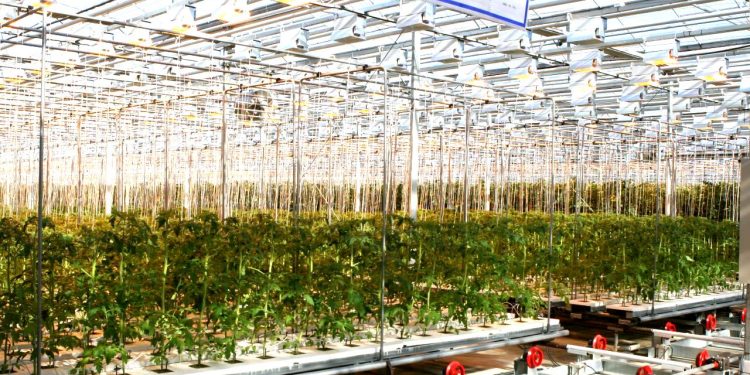#Agriculture #In-VitroSeedlingProduction #GreenhouseTechnology #SustainableAgriculture #BukharaRegion #Uzbekistan #TurkishJointVenture #HydroponicsTechnology #TomatoProduction #EconomicGrowth #RuralLivelihoods
The Bukhara-Varnet LLC, a joint venture between Uzbekistan and Turkey, has established a greenhouse complex in the Bukhoro-Agro Free Economic Zone with a total area of 40 hectares, mainly for tomato production. In addition, the company has recently set up a nursery spanning three hectares, utilizing in-vitro production to cultivate seedlings of tomatoes, peaches, apples, and cherries, with an annual capacity of 90 million seedlings. According to Anvar Khurshid, the Turkish investor of the joint venture, in-vitro seedlings have higher yields and resistance to various diseases. With plans to expand to a target area of 113 hectares, the Bukhara-Varnet LLC is set to create approximately 2,000 jobs and achieve a production capacity of 33,800 tonnes of tomatoes annually.
This is a significant development in agriculture, as in-vitro seedling production is a more efficient and sustainable method of cultivating crops. The Bukhara-Varnet LLC’s use of this technology not only increases productivity and quality but also reduces the risk of disease and pests. With the expansion of the greenhouse complex, the company will be able to contribute to the economic growth of the region, while also promoting sustainable agriculture practices.
It is worth noting that the Bukhara-Varnet LLC’s success can serve as a model for other countries and regions looking to improve their agriculture sector. By adopting and utilizing innovative technologies such as in-vitro production, farmers and agricultural businesses can increase their yields, reduce the risk of crop failure, and ultimately improve the livelihoods of rural communities.
The Bukhara-Varnet LLC’s large-scale in-vitro seedling production in the Bukhara region is a significant development in the agriculture sector, with the potential to revolutionize how crops are cultivated and grown. By utilizing innovative technologies and sustainable practices, we can increase productivity, promote economic growth, and improve the lives of those involved in agriculture.












